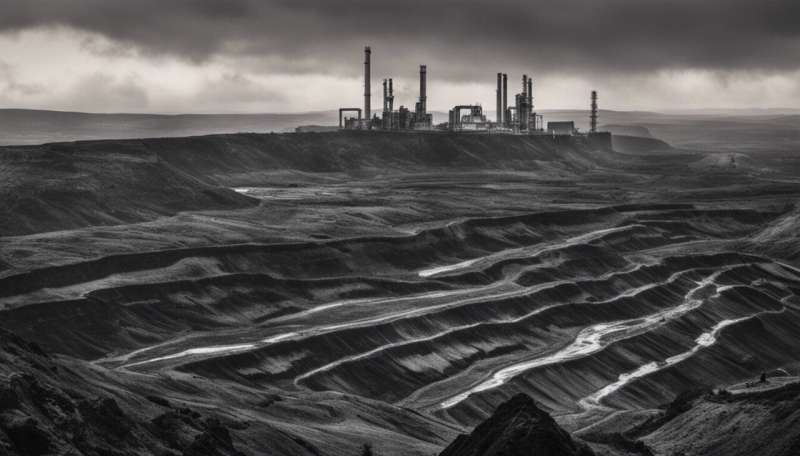Cumbria coal mine: Empty promises of carbon capture tech have excused digging up more fossil fuel for decades

The idea that a technology called carbon capture and storage (CCS) could catch molecules of COâ‚‚ as they emerge from the chimneys of power stations and factories has been around for more than two decades. Michael Gove, the secretary of state responsible for "leveling up" the UK's regions, recently his approval of the UK's first new coal mine in 30 years with "increased use of CCS". There's only one problem: CCS won't cancel out Woodhouse Colliery's emissions, which are estimated at , because it barely exists.
The UK government first started talking about in the late 1990s, when it was looking to meet and exceed its commitment to cut emissions under the Kyoto Protocol.
The fact that developing countries like China and India were planning to burn coal for decades made the UK consider starting a CCS industry as its "gift to the world", in the words of one senior lobbyist I interviewed for into industrial decarbonization.
It's obvious why oil and gas companies like the idea of CCS. Fossil fuel firms can keep extracting and selling their product (coking coal for the steel industry in the case of the new mine in Cumbria, north-west England, almost all of which is ) and mopping up the climate-wrecking emissions is someone else's responsibility. Politicians have been more circumspect. Some have chafed at the enormous upfront cost of developing and installing CCS and sinking taxpayers' money into a potential white elephant.
Over the last 20 years in the UK, the future potential of CCS has been used to justify , making hydrogen fuel from the and building .
Advocates of a which would scrub excess carbon dioxide from the atmosphere now envisage a vast network of pipes and ships transporting captured COâ‚‚ to storage facilities. One group known as the , composed of energy firms and airlines among other companies, sees the potential in CCS to allow societies to "decarbonize while ensuring continued economic progress". It also , (fairly, in my opinion) that "the enabling infrastructure [has] significant scale-up times [and] this acceleration needs to start today".
Amid all these breathless position papers and adverts, it can be easy to forget that pilot programs for CCS have been plagued by and . CCS is still many years away from making a dent in humanity's emissions, even if everything goes much more smoothly than it has—repeatedly—in the past.
To use the possible commercial existence of CCS some time in the future as a reason to wave through a high-carbon development now, as Gove has done, is a good example of what some fellow academics have called "".
Meaning, efforts at mitigating climate change (by reducing the amount of carbon spewed into the atmosphere) are deterred by the real or imagined existence of future technologies that might work. It's the equivalent of smoking more and more cigarettes each day and gambling that a cure for cancer will exist by the time you need it.
Provided by The Conversation
This article is republished from under a Creative Commons license. Read the .![]()


















